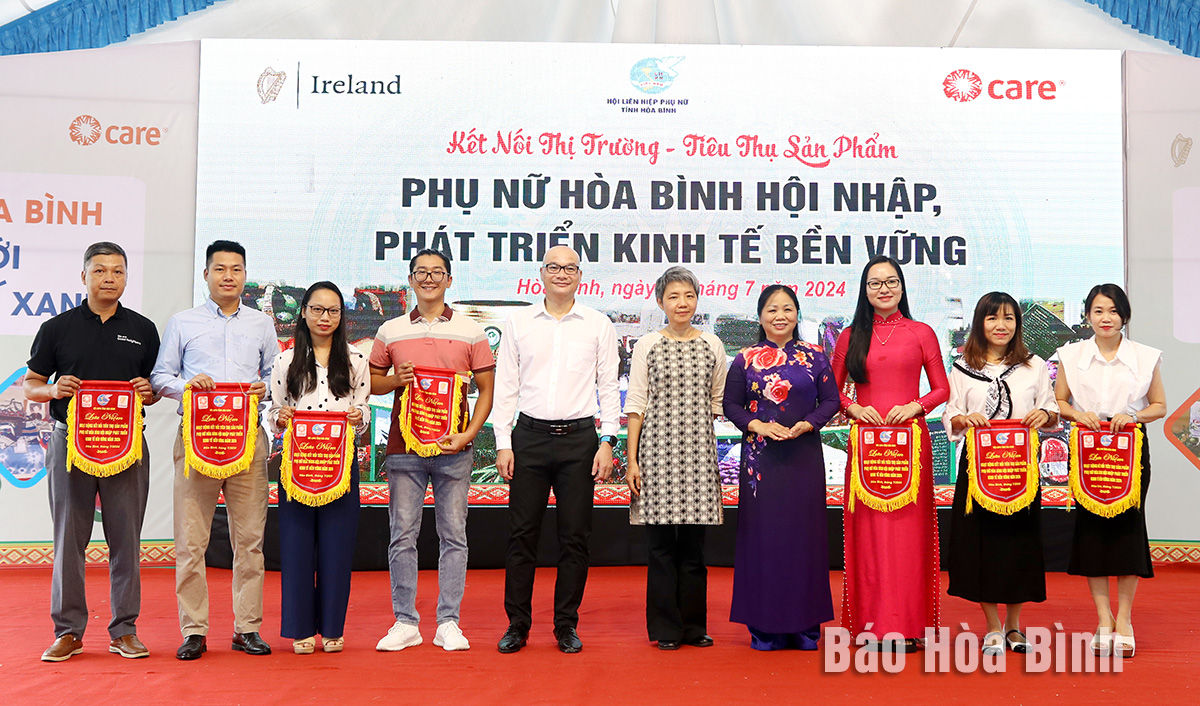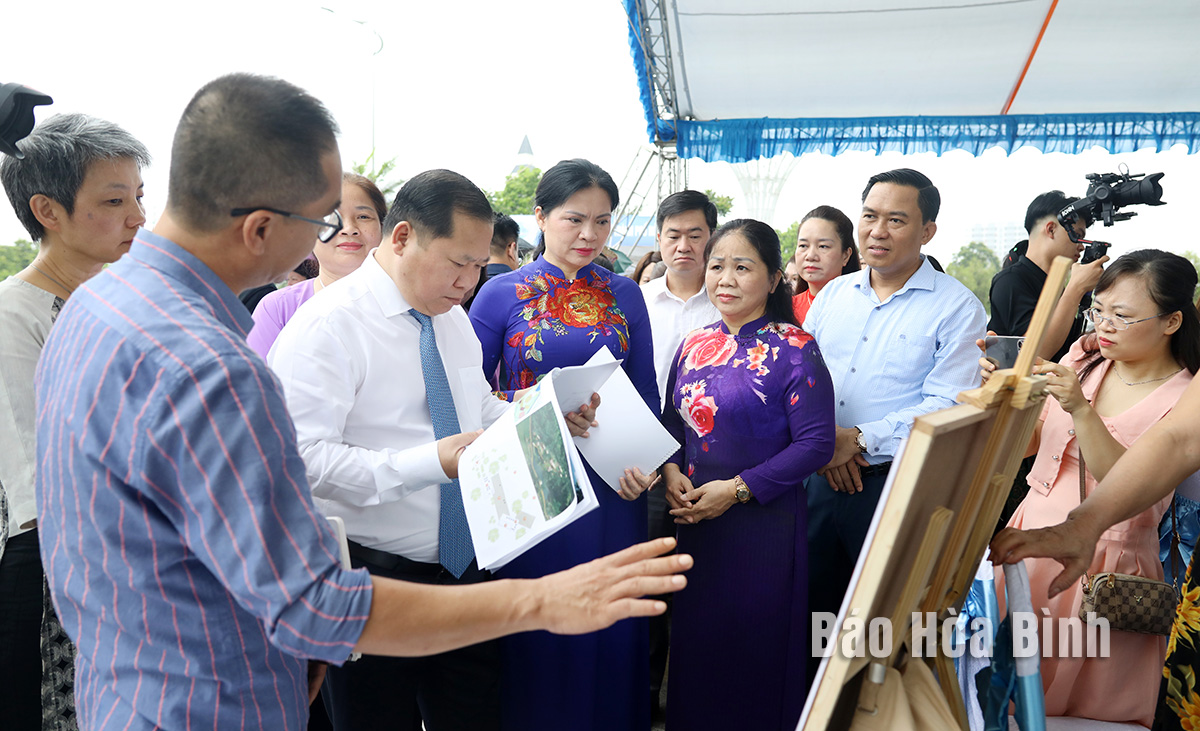
A market connection programme to push consumption under the theme "women integration for sustainable economic development” was jointly held by Hoa Binh province’s Women’s Union and CARE International Organisation in Vietnam in Hoa Binh city on July 16.
Ha Thi Nga, Member of the Party Central Committee and
Chairwoman of the Vietnam Women's Union (VWU); Nguyen Phi Long, alternate
member of the Party Central Committee and Secretary of the provincial Party
Committee and other delegates at the event.
The event was attended by Ha Thi Nga, Member of the Party Central Committee and
Chairwoman of the Vietnam Women's Union (VWU); Nguyen Phi Long, alternate
member of the Party Central Committee and Secretary of the provincial Party
Committee; leaders of the Women's Unions from 20 northern provinces;
representatives from enterprises, consumption units, and product manufacturers
in the province, Hanoi, and Nghe An province, among others.

Leaders of the provincial Women’s Union and CARE
International Oranisation in Vietnam and representatives of enterprises and
consumption units at the event.
The programme featured nearly 100 products on display, including One Commune-
One Product (OCOP), VietGAP-certified agricultural products, medicinal herbs,
quality livestock, and other items from 11 local enterprises.
The event was expected to boost the linkage between consumption
and manufacturing units with products manufactured and managed by women in both
Hoa Binh and other localities.
Besides, the initiative also sought to promote agricultural products,
handicrafts, services, and tourism, among others, from Hoa Binh’s women to
provinces and cities nationwide, with the ultimate goal of exporting them
internationally, thereby creating employment opportunities for local women
union members, increase incomes, improve living standards, and promote genuine
gender equality across all sectors.
At
the event, the organisers presented commemorative flags to participating
consumer units and honoured 10 exemplary products. Several agreements for
cooperation were also signed among participating units.
Once a mountainous province facing many challenges, Hoa Binh has, after more than a decade of implementing the national target programme on new-style rural area development, emerged as a bright spot in Vietnam’s northern midland and mountainous region. In the first quarter of 2025, the province recorded positive results, paving the way for Hoa Binh to enter a phase of accelerated growth with a proactive and confident mindset.
Hoa Binh province is steadily advancing its agricultural sector through the adoption of high-tech solutions, seen as a sustainable path for long-term development.
The steering committee for key projects of Hoa Binh province convened on May 14 to assess the progress of major ongoing developments
A delegation of Hoa Binh province has attended the "Meet Korea 2025" event, recently held by the Ministry of Foreign Affairs, the Embassy of the Republic of Korea (RoK) in Vietnam, the Korea Trade-Investment Promotion Agency, and the People's Committee of Hung Yen province.
Hoa Binh province joined Vietnam’s national "One Commune, One Product” (OCOP) programme in 2019, not simply as a mountainous region following central policy, but with a clear vision to revive the cultural and agricultural values in its villages and crops.
From just 16 certified products in its inaugural year to 158 by early 2025, the One Commune One Product (OCOP) programme in Hoa Binh province has followed a steady and strategic path. But beyond the numbers, it has reawakened local heritage, turning oranges, bamboo shoots, brocade, and herbal remedies into branded, market-ready goods - and, more profoundly, transformed how local communities value and present their own cultural identity.




